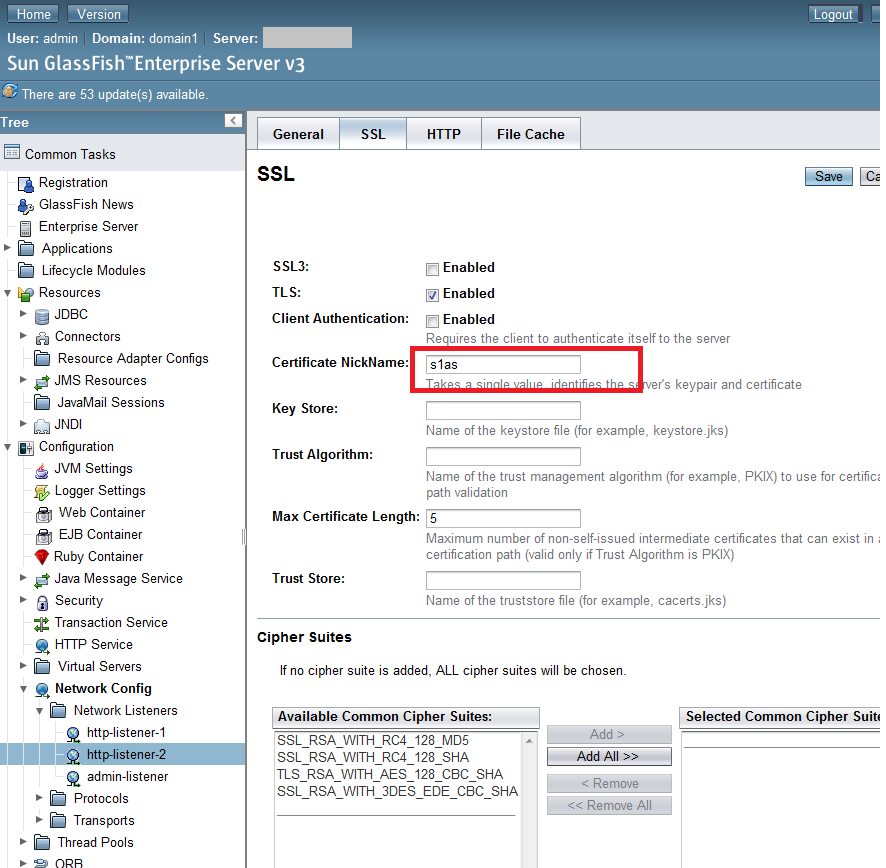

By default, GlassFish SSL port is on 8181. Step 7: Restart the GlassFish server Step 8: Visit the SSL URL in your browser “mykey” is the alias you used in the previous steps.

Perform a global replace of “s1as” with “mykey”. =$/config/ mycompanystore.jks Step 6: Change the server config to use new SSL nickname. Keytool -import -trustcacerts -alias mykey -file -keystore mycompanystore.jks -keypass changeit -storepass changeit Step 5: Change the server config to point to the new mycompanystore.jks file.Įdit the file cd \domains\domain1\config\domain.xml Keytool -import -trustcacerts -alias root -file gd_bundle.crt -keystore mycompanystore.jks -keypass changeit -storepass changeit Step 4: Import your domain certificate Copy these files to \domains\domain1\config
#Glassfish 4 ssl certificate zip file
Step 3: Download the GoDaddy certificate zip file The CA will eventually send you an email to download the certificates. Keytool -certreq -alias mykey -keypass changeit -keystore mycompanystore.jks -storepass changeit -file mywebsite.csrĮmail the file “mywebsite.csr” to the Certificate Authority (CA). Keytool -genkey -dname "cn=, ou=My Company Name, o=My Company Name, L=Philadelphia, ST=PA, C=US" -keyalg RSA -keysize 2048 -alias mykey -keypass changeit -keystore mycompanystore.jks -storepass changeit -validity 365 Step 2: Generate CSR file

Open MS-DOS window (Run As Administrator)Ĭd \domains\domain1\config Step 1: Generate key In the pop-up window, select Apache and JKS for the server type, click Download, and decompress the certificate file package to the local directory. Directions Log in to the SSL Certificate Service console, and click Download for the certificate you need to install. Be sure to change the values based on your server environment. The GlassFish service is installed in the /usr/share directory. Note: These variables will be displayed in red bold in the following steps.


 0 kommentar(er)
0 kommentar(er)
